Published
- 08:00 am

Truss Edge, a technology company that has been founded to support the day to day portfolio management and reporting tasks of hedge funds and ETFs, is launching in Europe this week.
Truss Edge was originally known in the US market as EDD Fund Services. Founded in 1998 by a global hedge fund to meet its own internal trade processing and post-trade requirements, EDD has grown its business over the years, serving hedge funds, CTAs and ETFs in the North American market and with a growing base of European clients. It is recognized for its expertise managing the processing and reporting needs of its clients.
Truss Edge provides seamless straight through processing with connectivity to counterparties and market data providers and a single source, robust processing platform. It draws on the company’s proprietary Safari technology, an end to end modular platform that can be adapted to the needs of funds of all sizes and has been operational for over 17 years.
Jay Duffy, CEO of Truss Edge, commented: “Fund managers around the world have been facing the prospect of increased reporting requirements for some time now, especially in the wake of the European MiFID II and EMIR directives. But beyond that, fund managers are also looking for trusted technology partners with the ability to scale up with them as they grow, who can deliver exceptional service and trade processing expertise on a day to day basis.”
Truss Edge brings several sought after services to the fund management industry, including:
• Comprehensive data management support for middle and back office operations
• OTC reconciliations and reporting with connectivity to the major pricing services
• Cost-effective, desktop order execution with low latency
• Three-way portfolio reconciliation linking to trading counterparties, including administrators, prime brokers, clearers and custodians
• A central portfolio data resource that can support the needs of other service providers - e.g. administrators, compliance consultants, investor reporting
Duffy added: “Truss Edge goes beyond being a technology solution for fund managers - part of our appeal is the depth of experience of our team of personnel. We work very closely with our clients to ensure that they get the maximum benefit from our services and our insights.”
Related News
- 02:00 am
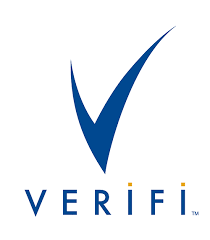
Verifi, Inc., a leading provider of payment and risk management solutions for POS and card-not-present merchants, today announced the launch of its Authorized Reseller Program.
Through the program, Verifi will expand its investment in its channel partner network to support and accelerate their growth and global merchant adoption of Cardholder Dispute Resolution Network™ (“CDRN”).
Since its launch in 2007, CDRN® has determined the industry standard for delivering unmatched chargeback prevention services. With consistent year-over-year growth, the CDRN patented “closed loop” process helps merchants achieve the highest level of true chargeback protection by reducing chargebacks up to 40%, while avoiding false positives, reducing manual review time, and increasing their profitability.
Verifi has partnered with leading payment gateways, processors, and payment solution providers to expand access and adoption of CDRN and protect the health of partner portfolios, adding considerable value to the services its partners offer their merchant clients.
Verifi’s Authorized Reseller Program enhances the value of its partners’ solutions in conjunction with offering CDRN. Key benefits include:
• Direct investment in partner sales effort through performance-based Marketing Development Funds
• Dedicated marketing and support staff
• Joint business development and referrals
• Dedicated Partner Portal: Easy access to sales tools, training, marketing materials, program performance, and lead tracking
“We are extremely grateful to our reseller partners for their proven ability to drive growth of CDRN, and we are excited to increase investment in our valuable partners through our Authorized Reseller Program,” said Matthew Katz, CEO of Verifi. “We are committed to arming our partners with the best tools and support to ensure our mutual success through the delivery of our award-winning dispute management solutions. We also look forward to building on that success with the introduction of new, innovative products in 2018.”
“It was a clear choice in our decision to work with Verifi, based on their reputation as an industry leader,” said Corey Baggett, CEO of Midigator. “Our clients are able to receive and respond to disputes in near real-time, which further enables our technology to help protect our clients’ revenue and profits.”
Later this year, Verifi will expand its offering to authorized resellers with additional value-added services, building on its already successful distribution model.
Related News
- 06:00 am
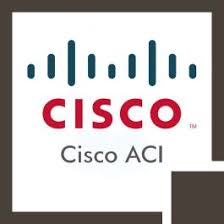
Providing secure, differentiated and rapidly delivered cloud services to customers is a crucial requirement for today's service providers. To meet cloud infrastructure demands, global service providers are increasingly turning to the Cisco® Application Centric Infrastructure (Cisco ACI(TM)), the industry-leading software-defined networking (SDN) solution. Cisco ACI reduces operational costs with an automated, policy-based programmable architecture, while improving scalability and security. In addition, new Cisco ACI multi-site management capability helps service providers to connect and manage multiple geographically distributed Cisco ACI fabrics and to move and manage workloads with a single pane of glass.
Cisco ACI is being deployed worldwide by service providers such as NTT Communications (United States), T-Systems (Germany), Hosters (Denmark), scanplus GmbH (Germany), Tieto Oyj (Finland), and Ritter (United States).
NTT Communications
NTT Communications (NTT Com) is a subsidiary of NTT Group and a 20-year IT service provider veteran. The U.S. division of NTT Com recognized a market opportunity to better serve the enterprise market with a portfolio of managed service offerings tailored to key vertical markets that would also meet compliance mandates and regulations.
To succeed in this new direction, NTT Com decided to transform its data centers with a focus on greater security and performance. NTT Com selected Cisco ACI because it offered a much more agile management model over competing industry solutions. NTT Com can now quickly set up highly complex data center domains, bringing new customers onboard in as little as three days, and the security policies inherent in Cisco's SDN solution also support the compliance needs of its customers.
"Cisco ACI means applications guide the way the network acts, not the other way around," says Indranil Sengupta, vice president of product engineering at NTT Com. "We're able to offer an outstanding customer experience with fewer errors and up to 80 percent better application performance."
T-Systems
With operations in more than 20 countries and multi-billion euro revenues, T-Systems, based in Germany, is one of the world's leading providers of information and communications technology. Increasingly T-Systems midsize customers are requesting new services based on cloud services and innovative business models, such as data analytics, the Internet of Things, machine-to-machine communications, and industrial Internet. T-Systems selected Cisco ACI to provide its customers with tailored infrastructure, platforms, and software solutions.
"Our customers want high quality services, uncompromised security, and flexibility, all at a reasonable price," says Andreas Schwall, Delivery Executive Production Midmarket at T-Systems. "Our challenge was to reduce IT effort and maintenance-based outages, while improving capacity at the network and security layer."
In addition, Cisco ACI allows T-Systems to run more agile, flexible operations and open up new security offerings for customers. "Based on open APIs and an application-centric view of our landscape, we can reduce lead times during the onboarding process and rapidly add more services to our portfolio," adds Schwall.
Now application traffic steers the network, rather than the other way around, enabling T-Systems to build the network environment around different customer applications, significantly improving performance and better meeting requirements. Optimizing software-defined automation has reduced manual tasks by 90%, providing a productivity gain equivalent to three full-time employees.
Hosters
Hosters, located in Denmark, is a certified Microsoft Azure Managed Service Provider offering cloud and hybrid solutions. The company turned to Cisco ACI to reduce time to market and to provide customers with the right solution easily and quickly. Security was also an important consideration, and Hosters worked with Fortinet and Cisco ACI to ensure the highest levels of security for customers. Cisco ACI is now operating in three Hosters data centers and baby spines, and the company is planning to upgrade its data centers to 100GbE, made easier with the Cisco ACI deployment.
"The results of the Cisco ACI deployment have exceeded our expectations," said Thomas Raabo, CTO, Hosters. "Our deployment time of new services to customers has been cut down from weeks to hours, and we are spending less time on systems integration and more time on innovation. We're moving to a DevOps model of continuous improvement, and we're creating agility and value that can be passed along to our customers."
scanplus GmbH
As a leading provider of managed cloud services in Germany, scanplus delivers to Deutsche Telekom business customers carrier-grade cloud services with rock-solid service level agreements throughout Europe. scanplus wanted to provide Deutsche Telekom customers with a "cloud in a box" that offered options and full automation and delivery through a self-service portal. scanplus chose Cisco ACI to address these needs, and will also benefit from a network fabric that scales to multiple sites, with single pane-of-glass management and automation. Because scanplus is supporting a large number of business customers in a shared cloud environment, data protection and strict tenant segmentation are essential. Designed for secure multi-tenancy, Cisco ACI makes it possible for applications and users to share the same infrastructure without leaking information across tenant boundaries.
"With Cisco ACI, we have full segmentation of each tenant, and can also reference other tenant objects within a tenant while maintaining isolation, which makes them private, separated, and highly secure," said Stefan Daiber, head of architecture at scanplus.
Using Cisco ACI multi-site functionality, scanplus is also in the process of extending its network fabric to multiple data centers. Because the solution works with any vendor's hypervisor, it can easily accommodate the different systems in each location.
"The openness of Cisco ACI is a big benefit," said Daiber. "It doesn't just support any hypervisor, but also all of the network equipment surrounding the hypervisor. It gives us a tremendous amount of choice and flexibility."
Tieto Oyj
Tieto Oyj, headquartered in Finland, is a Nordic software and services company. Tieto has deployed Cisco ACI as a Layer 2 fabric in six data centers in three countries. Tieto's growth strategy is to shift from providing basic services to also delivering an outstanding experience for its customers. That means being able to deliver services quickly and making it possible to build anything on the application level that a customer wants-without being hindered by the underlying physical infrastructure.
Tieto selected Cisco ACI solution to ensure a holistic architecture with centralized automation and policy-driven application profiles. Using the Cisco ACI unified policy model, the team enforces policy through endpoint groups (EPGs), a collection of network endpoints that includes a wide range of entities, including bare-metal servers, virtual machines, and containers.
"Cisco ACI provides a foundation that we can build on to channel innovation into new services," said Juha Syrjänen, Head of Connectivity Services Business at Tieto. "We'll be able to quickly and efficiently deliver basic connectivity services, while building a new connectivity ecosystem between our customers, their other partners, and Tieto."
Ritter Communications
Headquartered in the United States, Ritter Communications serves more than 45,000 customers in rural Arkansas and Tennessee with advanced voice and data services typically only found in major metropolitan areas. Although Ritter Communications has provided local phone service since 1906, sheer connectivity doesn't deliver the revenues it once did. Ritter needed to deliver a new set of business-focused cloud services to drive revenue growth. But Ritter had limited operational experience with cloud services, and so did its customers.
"We serve a very rural market, and many network managers are tied to their servers. They wouldn't feel comfortable putting everything in the public cloud," said Greg Sunderwood, vice president of engineering at Ritter Communications. "We wanted more differentiation on the front end and more control on the back end."
Ritter's Hosted Solutions team found the answer in Cisco Cloud Architecture for the Microsoft Cloud Platform. The integrated solutions feature a combination of Cisco ACI, Windows Azure Pack, and Cisco Unified Computing Systems (UCS®).
"We essentially pull the public cloud into a customer's environment," says Brandon Fergerson, senior cloud engineer at Ritter Communications. "Microsoft Azure is the customer-facing management console, and Cisco ACI handles back end infrastructure and network management."
The Hosted Solutions team has gone from manual provisioning to 100 percent virtual deployments, and customer spending for the new services is 50 to 60 percent higher than Ritter anticipated.
"We've turned server-hugging skepticism into cloud-first approaches," Fergerson says. "I see it all the time. The subscriptions start with just one low-risk server, then it seems like every time I check back on that tenant, they are adding more and more resources in the cloud as the trust grows. The Ritter cloud is a simple, customer-friendly, highly automated offering, and it's been the catalyst for a mind shift-for us and our customers."
Related News
- 04:00 am
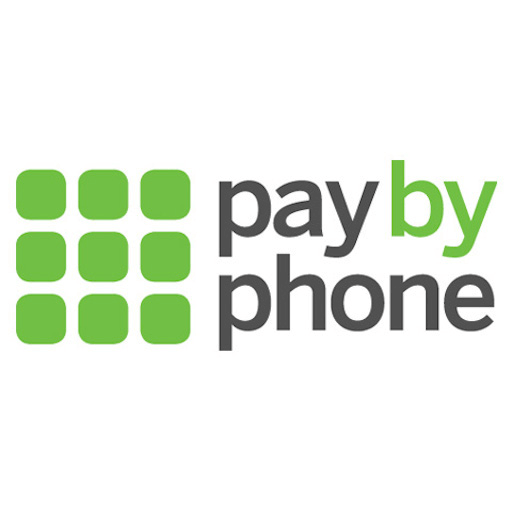
PayByPhone, the global leader in mobile parking payments, today announced that it will appoint Andreas Gruber as president and Chief Executive Officer effective June 1st, 2018. Francis Dupuis, the former President and CEO, will take over a position in Germany with parent company Volkswagen Financial Services AG. To provide additional impetus to the PayByPhone board, two new board positions have been created and as a result Maggie Clay (CFO) and Catherine Scott (Legal Counsel) will be appointed effective June 1st, 2018.
During his time at PayByPhone, Francis led the business through significant growth and organizational change and leaves the company well positioned for continued success. "We would like to thank Francis for his strong leadership and look forward to building on his experience within Volkswagen Financial Services," Gerd Künne, Vice-President of mobility unit at Volkswagen Financial Services, said.
Francis is excited about working in the parent company, but is also grateful for his time at PayByPhone: "Working for the PayByPhone team has been an amazing experience; I will be cheering the team on from Germany!"
Andreas, a former board member of PayByPhone, will take the reins of a company poised for global expansion. "With close to 20 years of international experience in the OEM business and with an extensive background in Strategy and Business Development, Andreas is the ideal candidate to continue to lead PayByPhone into a successful future," Lars Henner Santelmann, CEO of parent company Volkswagen Financial Services AG, said.
Andreas Gruber is looking forward to the new challenge: "I have been deeply involved in the Parking business in recent years through my board appointments at PayByPhone and Sunhill technologies. Parking is today one of the key pain points for drivers around the world. I very much look forward to working with the team at PayByPhone and to delivering great products that will make the world of mobility an easier place for our customers."
Related News
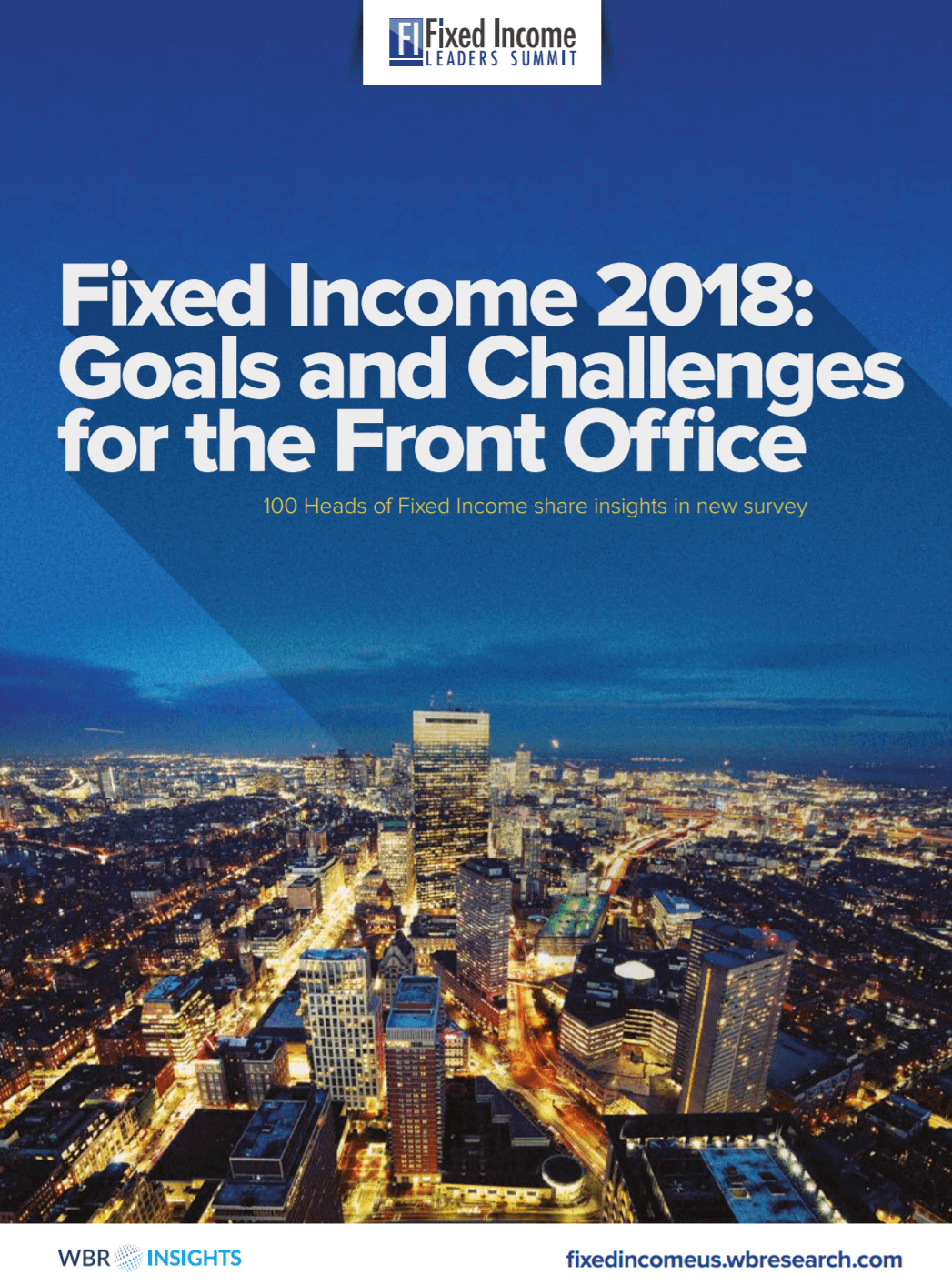
- Reports
- 19.04.2018 12:27 pm
Ahead of the upcoming TradeTech US Fixed Income Leaders’ Summit, WBR Insights, the research division of Worldwide Business Research, surveyed 100 North American Fixed Income professionals, from traders and portfolio managers to CIOs. Among the priorities listed, was the need for new Fixed Income technology, cited by 63% of participants. These technological enhancements, coupled with the constant pressure to reduce costs, indicate that the current operational environment of legacy and best of breed systems cannot support the long term strategy of Fixed Income desks, and are also an expensive burden on day to day front office activities and P&L.
According to the report, Fixed Income desks face a number of critical challenges:
- 81% are hampered in understanding firm wide limits, counterparty exposure and other important risk indicators
- 70% find securing timely and accurate start of day/intraday positions and cash projections challenging
- 59% struggle to measure investment performance relative to blended benchmarks/indices
- 56% spend up to an hour reconciling positions and cash at the start of their day, just to reach a ‘satisfactory confidence level’
Other Reports
- 08:00 am
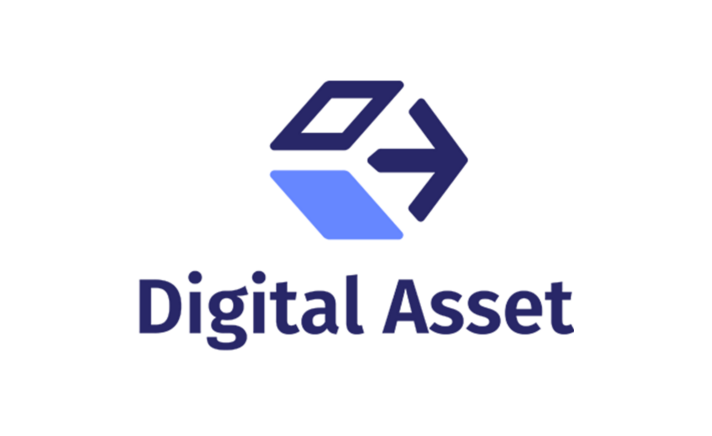
Digital Asset,the leading provider of Distributed Ledger Technology for the financial services industry, today unveiled a developer program for its enterprise smart contract language, DAML. The program, which opens today to a wider audience, provides developers with tools and training so that they can use DAML to model sophisticated, multi-party applications that run on the Digital Asset Platform.
Several of Digital Asset’s partners and clients, including Accenture, GFT,IntellectEU, ASX, ABN AMRO, and The Depository Trust & Clearing Corporation (DTCC)have already joined the private beta of the developer program. The program provides access and training for the DAML Software Development Kit (SDK), a suite of tools to accelerate application development. Digital Asset has already trained more than 100 developers at partner and client organizations that participated in the beta phase of the developer program. Registration opens today atwww.daml.comfor organizations interested in downloading the DAML SDK Developer Preview.
DAML is a uniquely powerful, intuitive smart contract language specifically designed for use in distributed ledger applications that align financial business processes between organizations. Relative to other languages, its design reduces the risk of developer automation errors and guarantees the integrity and confidentiality of a shared, trusted record of value transfer.
“DAML is an excellent tool for modeling inter-company workflows and capturing rights and obligations accurately," said Rob Palatnick, Chief Technology Architect at DTCC. “It provides the necessary capabilities to construct smart contracts in a very clean way.”
The DAML SDK includes the same integrated set of developer tools used by Digital Asset’s engineers to build a replacement for CHESS, the ASX post-trade clearing and settlement system for cash equities, the first large-scale replacement of a mission-critical market infrastructure system to use DLT.
Peter Hiom, Deputy CEO of ASX, said: “ASX welcomes today’s announcement and is proud to be part of this broader developer community. We will be helping our customers and their vendors use the DAML SDK to build their own applications on ASX’s implementation of the Digital Asset Platform that will replace CHESS. This is an important step to realize the benefits
of DLT by stimulating greater innovation, improving operational efficiency, and making life easier for our customers.”
“Our clients and partners can now independently build applications for the Digital Asset Platform. DAML is the only smart contract language tested at the scale needed for a national market infrastructure replacement project,” said Blythe Masters, CEO of Digital Asset. “By opening access to a wider range of participants we are extending the application ecosystem around the Digital Asset Platform and empowering our customers to innovate.”
Accenture, GFT, and IntellectEU are valued early partners in building Digital Asset’s ecosystem around DAML. The developer program enables them to deliver value to clients globally and reduce the time needed to bring new applications to production. Executives from partner firms commented on the value of their participation in Digital Asset’s developer program:
David Treat, Managing Director and Global Head of Accenture’s blockchain practice, said: “Accenture has made a significant investment in developing the talent and range of specialized services needed to deliver client applications working closely with Digital Asset and leveraging its modeling language and software development tools.”
Richard Miller, Strategy Head at GFT, said: “The Digital Asset Platform and DAML offer unique benefits to our clients and enable GFT to bring distributed ledger solutions from prototype to production in a shorter time frame.” At the Synchronizeconference today in New York, GFT will showcase its prototype RFQ application for OTC derivatives, which was built using the DAML SDK.
Hanna Zubko, CEO of IntellectEU, said: “Working with DAML has allowed our developers to build applications quickly and easily without having to worry about the underlying complexity of the distributed system, manually manage data segmentation, or rely on cryptography for privacy. By partnering with Digital Asset, we at IntellectEU can serve our clients faster utilizing secure smart contracts.”
For more information about partnering with Digital Asset, please contactpartners@digitalasset.com. To register for access to the DAML SDK Developer Preview and view client case studies and testimonials, please visit www.daml.com.
Related News
- 07:00 am

SimCorp, a leading provider of investment management solutions and services to the global financial services industry, today announces the findings of a newly commissioned WBR market survey, ’Fixed Income 2018: Goals and Challenges for the Front Office’. The report reveals 66% of Fixed Income professionals are seeking to reduce high operating costs, which impact profitability of the Fixed Income desk, as their number one priority for 2018. The report comes at a pivotal time in the global market, marked by the return of inflation and volatility, and unveils the impact of costly and ineffective fragmented operations, critically affecting the success of Fixed Income desks.
Ahead of the upcoming TradeTech US Fixed Income Leaders’ Summit, WBR Insights, the research division of Worldwide Business Research, surveyed 100 North American Fixed Income professionals, from traders and portfolio managers to CIOs. Among the priorities listed, was the need for new Fixed Income technology, cited by 63% of participants. These technological enhancements, coupled with the constant pressure to reduce costs, indicate that the current operational environment of legacy and best of breed systems cannot support the long term strategy of Fixed Income desks, and are also an expensive burden on day to day front office activities and P&L.
According to the report, Fixed Income desks face a number of critical challenges:
- 81% are hampered in understanding firm wide limits, counterparty exposure and other important risk indicators
- 70% find securing timely and accurate start of day/intraday positions and cash projections challenging
- 59% struggle to measure investment performance relative to blended benchmarks/indices
- 56% spend up to an hour reconciling positions and cash at the start of their day, just to reach a ‘satisfactory confidence level’
Many Fixed Income desks are impeded by a history of adding additional systems and interfaces whenever a new challenge has arisen. As a result, they are now not only faced with increasing maintenance costs, but also heightened investment and operational risk, caused by data gaps between the multiple systems put in place, to support the investment lifecycle. To date, many firms have attempted to overcome this obstacle by deploying more resources to fill in these critical gaps. With tighter margins leading to leaner teams, this status quo has now become unsustainable and more importantly, is eating into time spent on vital alpha generation.
Terry Flynn, Front Office Specialist, SimCorp said: “The report’s findings make it clear that Fixed Income operations is in need of significant change. For years now, investors have ploughed their assets into cheap multi-asset ETFs. Fixed Income professionals have a real opportunity to fight off this passive trend, but they must first confront the fragmented operations that burden their daily lives. Delayed and incomplete data, limited firmwide exposure views, restrictive asset class coverage and Excel-driven manual reconciliation, have tied the hands of many Fixed Income desks. To free themselves of this burden, firms need to eliminate the bottlenecks by consolidating their investment operations. This will create the operational efficiency required to deliver competitive returns and attract and retain investors.”
Oliver Kirkbright, Content Director, Fixed Income Leader’s Summit, WBR: “With the return of VIX volatility and increasing inflation driven by the recent Federal Reserve interest rate rise, the fight for fund flows, between active management and passive management has taken a new turn. Fixed Income professionals have a clear opportunity to gain back market share. But to do this successfully, they need to address the operational hurdles that are currently thwarting their profitability, and seek a consolidated operational strategy that will deliver immediate results, as well as long term profitability.”
Click here to access the full report Fixed Income 2018: Goals and Challenges for the Front Office
Related News
- 05:00 am

Wolters Kluwer has hired Dan Carnevale to further strengthen its Finance, Risk & Reporting business in Canada.
Carnevale, based in Toronto, joins the company as Country Manager, with a remit to ensure customers experience value from products and services, aligning Professional Services and Product Management resources.
Carnevale brings 15 years of financial markets experience to the team, including more than six years in capital markets positions at CIBC Mellon and two years of securities lending experience at Royal Bank of Canada Investor Services. He has also held senior sales positions at Calypso Technology and Thomson Reuters.
Wolters Kluwer has had a continuous presence in Canada for more than a decade and more than 10 leading banks currently use the firm to provide the software for their Bank of Canada reporting obligations.
“As part of our strategic plans for 2018 and beyond, we are continuing to invest in Canada, demonstrating our commitment to delivering superior deployment and implementation services for existing and new clients in the country,” comments Todd Lawrence, General Manager for Wolters Kluwer’s Finance, Risk & Reporting, Americas, business. “Our award winning OneSumX suite of solutions is used by financial services firms across North America to manage a broad array of regulatory reporting, finance and risk obligations. Our technology and content expertise means we are able to offer integrated regulatory compliance and reporting solutions for managing ever more complex finance, risk and regulatory reporting obligations.”
Last year Canada’s Equitable Bank selected the company’s OneSumX Finance, Risk and Reporting solution. The solution will help Equitable Bank manage regulatory and supervisory expectations for its credit and capital management processes, as well as automate its International Financial Reporting Standards (IFRS) 9 requirements.
Wolters Kluwer’s Finance, Risk & Reporting business is global, with regional headquarters for the Americas region managed from Waltham, Massachusetts. In the Asia Pacific region operations are headquartered in Singapore and in Europe, Middle East and Africa the firm’s operations are managed from offices in Belgium and London.
Leading financial services firms from across the world have implemented the company’s OneSumX solution for Regulatory Reporting, Risk and Finance (including IFRS 9 solutions). Major financial services providers that have recently announced their use of Wolters Kluwer include ABN AMRO, Bahrain Middle East Bank, China Everbright Bank, China Merchants Bank, LGT, Nordea and BBVA.
Related News
- 04:00 am
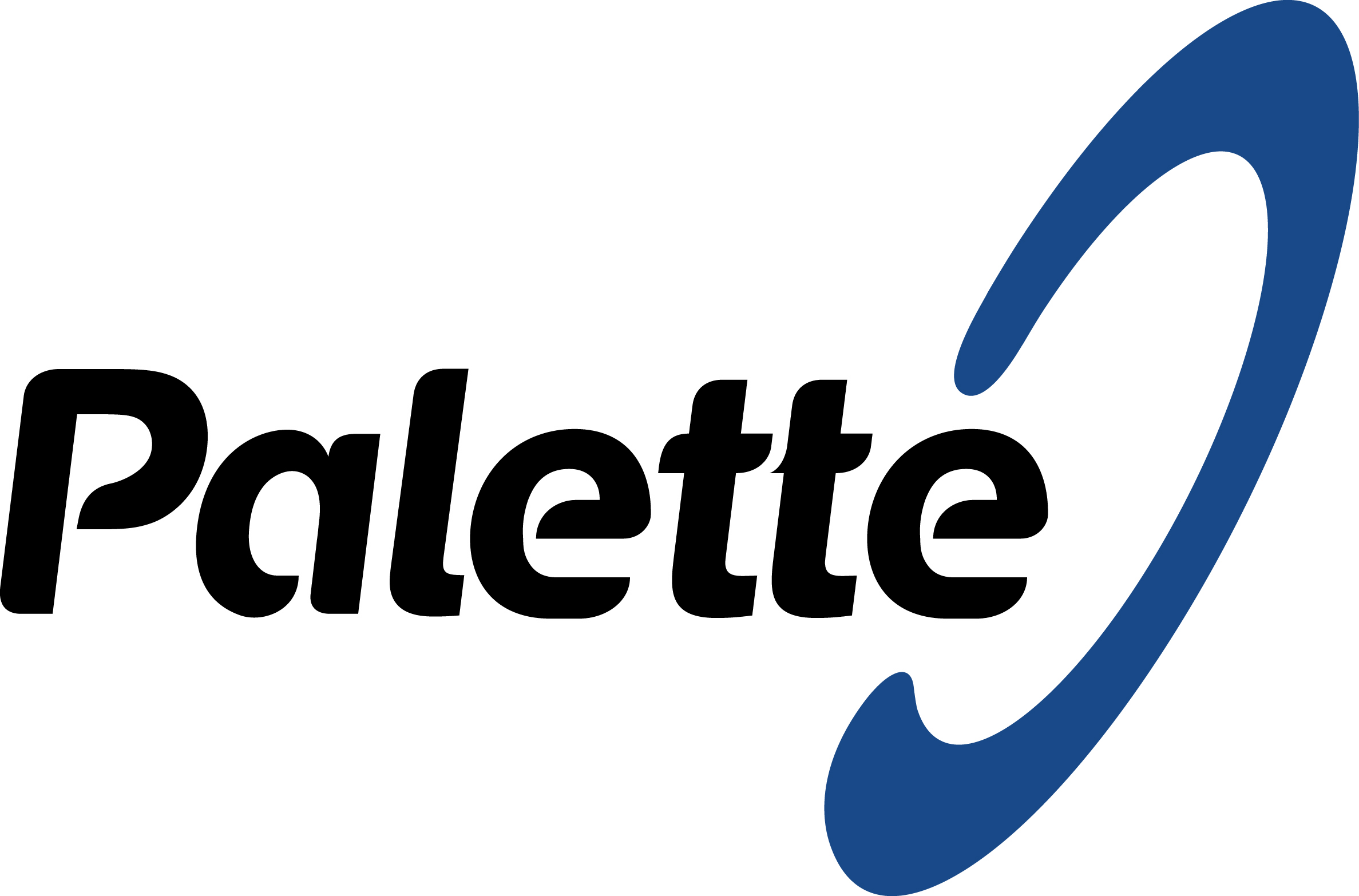
Palette Software, a leading provider of accounts payable automation and purchase to payment software, has announced the launch of PaletteOnline, a new cloud solution that enables customers to access an end-to-end P2P solution via the cloud, guaranteeing optimal functionality, security and scalability.
With PaletteOnline, users gain access to the entire product range included in PaletteArena suite, that enables companies and organizations save time and costs by automating their management of purchases and invoices, utilizing a software-as-a-service delivery model.
PaletteOnline includes:
- All functionality, always updated: The complete range of products in PaletteArena are available, but customers only pay for the functions that they use. With the SaaS model, users avoid costly upgrades of hardware and always have access to the latest updates.
- User-friendliness: A completely new user interface that is intuitive and easy to use.
- Compatibility: Easy integration with other business and purchase systems. Standard integrations are available for over 50 business systems.
- World class security: Hosted on the cloud platform Microsoft Azure which guarantees the best possible security.
- Scalability: At any time, customers have the opportunity to scale up or down the scope of their use.
- Freed-up time for the IT department: All operations and maintenance runs automatically and without additional costs, reducing demands on IT department resources.
“With PaletteOnline, we are taking automation of administration for the finance and procurement departments to the next level. This is the most flexible, secure and scalable version of our product offering so far,” says Johan Harrysson, CEO at Palette Software.
Related News
- 04:00 am
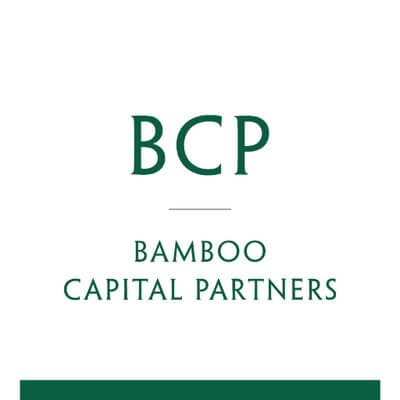
Bamboo Capital Partners (“Bamboo”), the pioneering private equity firm delivering positive social and financial value, today announces that it has exited its investment from Mibanco, Latin America’s largest microfinance bank by asset size, through a divestiture to Credicorp Ltd.
Bamboo’s investment in Mibanco via its Financial Inclusion Fund I (FIF I) is Bamboo’s most significant investment to date. Following the investment, which made Bamboo the largest minority shareholder, the firm held a seat at Mibanco’s board where it provided strategic input and guidance throughout the investment period.
Today, Peru headquartered Mibanco has grown to become Latin America’s largest microfinance provider with a PEN 9,471[1]m loan portfolio, which yields PEN 362[2]m of net income. Founded in 1998, Mibanco is Peru’s fifth largest bank providing both lending and savings products. Mibanco has a particular focus on providing loans to micro and small businesses.
Commenting on the exit, Jean-Philippe de Schrevel, Founder and Managing Partner at Bamboo, said: “As a supportive shareholder throughout our investment period, I am delighted that Mibanco has cemented and furthered its role as one of the world’s pre-eminent microfinance providers. By providing micro and small businesses with access to finance, Mibanco has helped spur strong domestic development throughout Peru - this is fully aligned with Bamboo’s ethos of having impact at scale.
“Mibanco is also an example of Bamboo investing in a business with substantial scalability underpinned by demographics, technology and significant market opportunities. Moreover, with the business in such rude health and having had board representation for 7 years, now is the time for us to exit and to realise our investment return.”
Commenting on the acquisition, Walter Bayly CEO of Credicorp Ltd., said: “This transaction closes a chapter of fruitful collaboration with Bamboo. Having been a long term investor in Mibanco, Bamboo has contributed considerably to the development of the institution and proven to be a great partner. In the future, and building upon this positive experience, we expect to maintain a successful and strong relationship with the Bamboo team.
“Overall, we are pleased with this acquisition as it continues to strengthen our presence in the microfinance business”.
Financial Services is one of Bamboo’s three sector focuses, backing companies that help enable financial inclusion amongst those currently underserved and without access to financial products. Bamboo has two Financial Services funds - FIF I and FIF II - having made 36 investments and 11 exits in the sector to date.
Bamboo also recently exited from Vitas Group, a leading microfinance institution in post conflict MENA and Eastern Europe regions. In addition, Bamboo also led a $14 million investment in ComparaOnline, the leading marketplace for financial products in Latin America through FIF II in September of last year.









